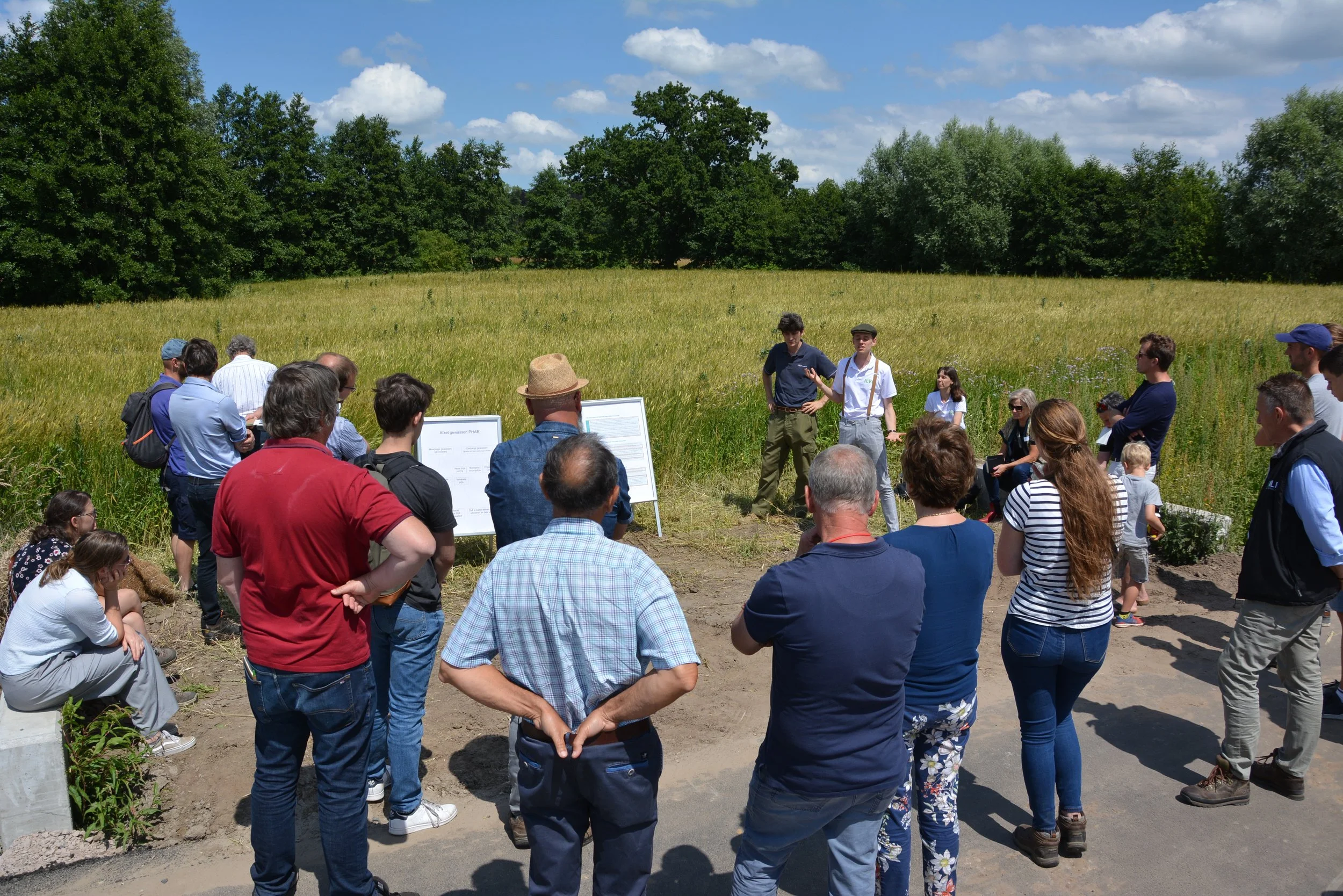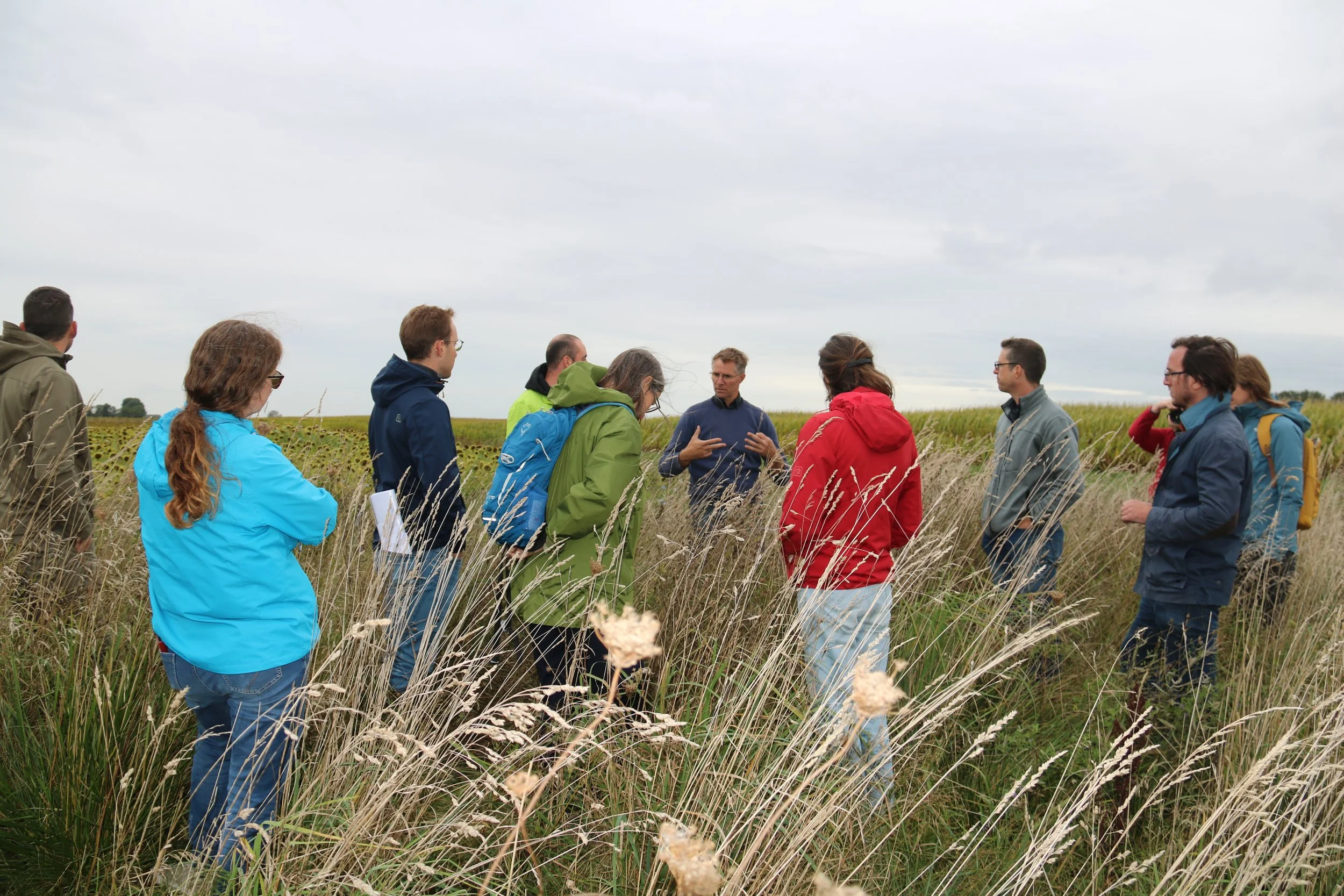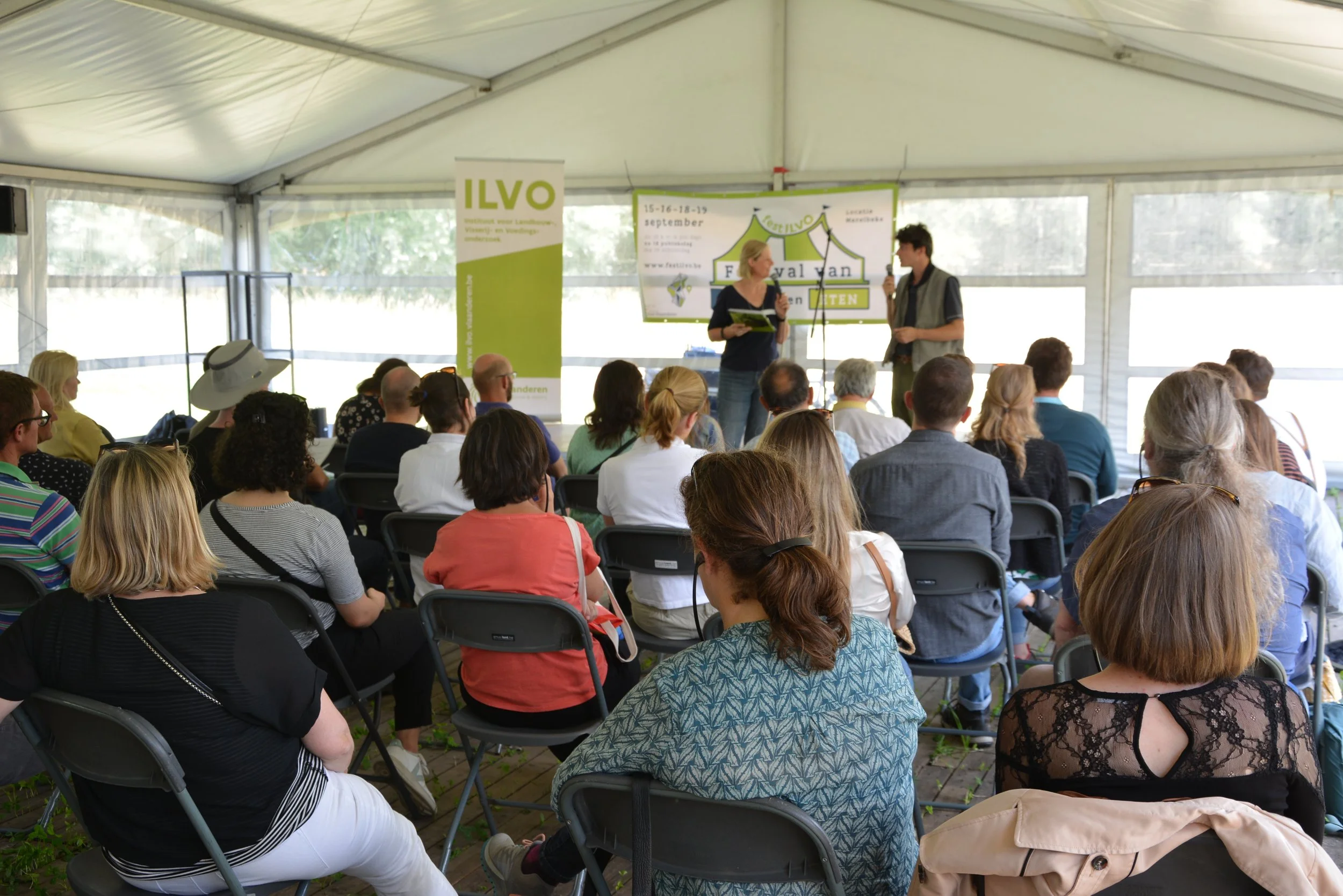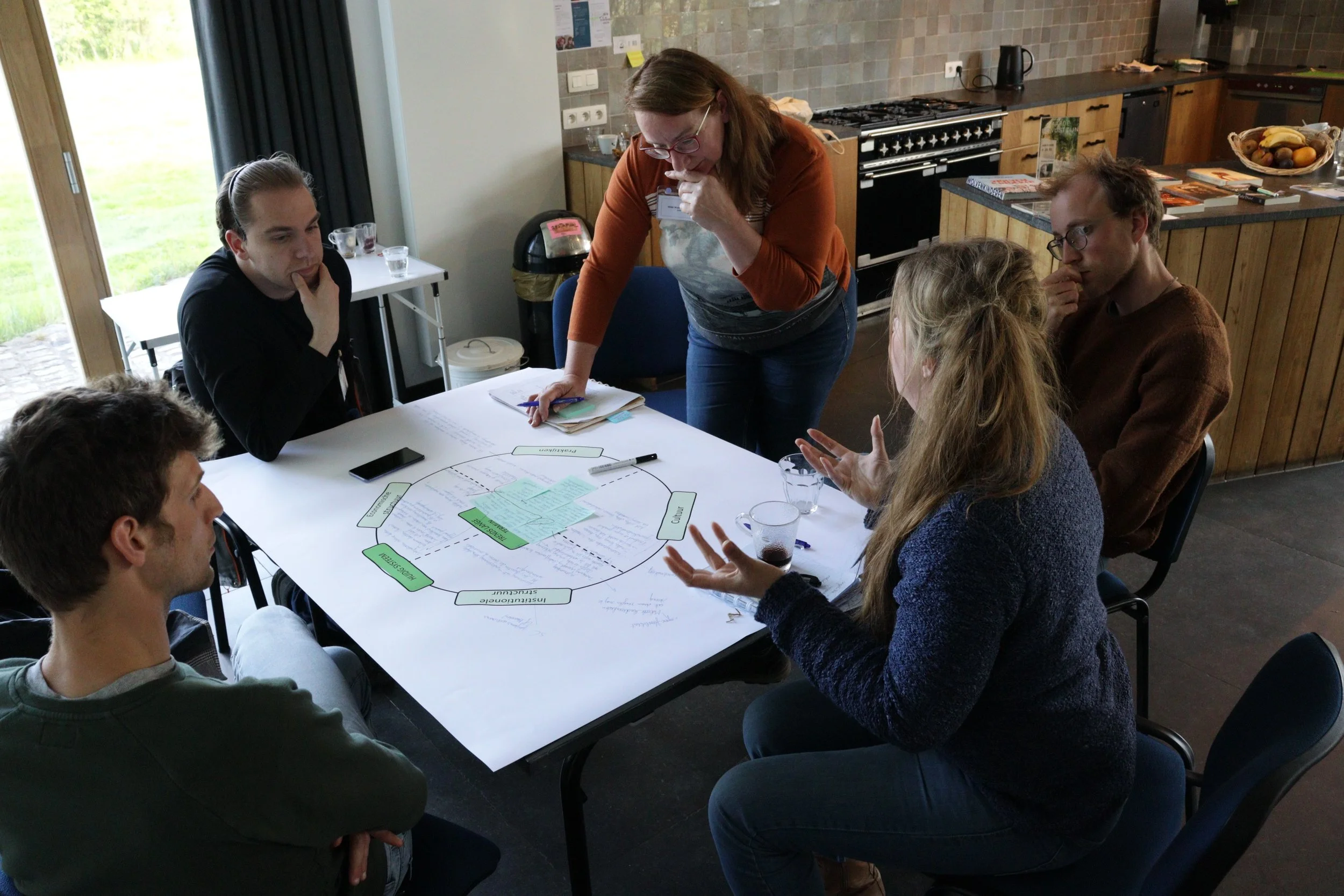LLAEIBIO
Living Lab Agroecology and Organic Agriculture
Living Lab
The Living Lab Agroecology and Organic Agriculture (LLAEBIO) supports agroecological innovation as a lever in the transition to more sustainable food and agricultural systems in the region of Flanders (BE). This living lab brings together stakeholders from across the agri-food system with a shared interest in agroecology and organic farming, facilitating innovative research and promoting the exchange of knowledge and experiences. The LLAEBIO’s overarching goal is to foster connection between people, organizations, policy, science and practice.
Background information
Aim
Disseminate information, knowledge and expertise on agroecology and organic farming;
Bring people together to facilitate mutual exchange of expertise and knowledge about agroecology and organic farming;
Support and promote research and experiments on agroecology and organic farming.
The origin of the initiative:
2017: a bottom up request from the organic sector for more participatory research
2018: a top down request from the Flemish government to the Flanders Research Institute for Agriculture, Fisheries and Food (ILVO) in Merelbeke (BE) to set up a living lab on organic farming
increasing societal demand for agroecological principles to guide agricultural practices
agroecology is added to organic farming to broaden the focus of the living lab
Establishing the initiative
2019: broad consultation of potential stakeholders
late 2019: a joint vision and mission statement was developed in consultation with interested stakeholders
Official launch of the initiative: February 2020
2020 onwards:
participatory working groups start planning activities
late 2020: first activities were launched
Participative working groups continue to plan and execute various activities;
Funding structure
ILVO coordinates and facilitates the living lab and elaborates activities together with stakeholders. Resources committed are primarily (many) working hours. Funding for activities is sourced through external projects and ad hoc contributions from stakeholders involved in the living lab.
Achievements
Knowledge sharing and network building
‘LLAEBIO draait door’: A quarterly event that updating members on LLAEBIO activities and offering a forum to partners to share their needs or experiences in projects or other activities (https://www.llaebio.be/output)
Webinars on themes of interest: For example, a system-thinking exercise on ‘fair pricing,’ which led to a series of three webinars combining theoretical and practical insights. (https://www.llaebio.be/output)
Soil health coference: An event featuring international keynote speakers held on World Soil Day in Brussels to highlight the importance of healthy soils for a broad range of stakeholders.
Farm visits and an annual demonstration day on the Experimental Platform for Agroecology in Hansbeke (Demodag Proefplatform Agro-Ecologie te Hansbeke - PPAE Hansbeke)
Annual demonstration day on the Experimental Platform for Agroecology in Hansbeke
Methods, stakeholder engagements and tools
From the beginning, LLAEBIO has used the basic ENOLL principles and components for living labs. These principles provide a steady compass for the members and their discussions and practical activities. System thinking, the aim to join scientific and tacit knowledge, and strong stakeholder engagement and involvement are seen as being indispensable to innovation.
Priorities on the living lab agenda are determined collaboratively with key stakeholders of the living lab through interactive workshop. Temporary participatory working groups, composed of volunteers who participate based on their interests, are established to define and develop activities and actions on these themes. Depending on the working group’s objectives and the target group, the most appropriate tools and working methods (field visits, webinars, round tables, etc.) are explored and selected. The activities are open for all stakeholders in the agri-food system e.g., farmers (conventional and organic/agroecological), farm suppliers and buyers, food processers, consumers, researchers in different disciplines, extension workers, (farm) advisors, teachers, policy makers, NGO members, and the like).
Beyond the interactive meeting and the working groups, the living lab is always open for ad hoc questions via the LLAEBIO website and e-mail.
Defining themes of interest with LLAEBIO members during interactive workshops
Activities
Organization of interactive and educational knowledge-sharing activities in order to
strengthen connection between stakeholders,
enhance farmers’ knowledge about agroecological practices and opportunities (preferentially via peer-to-peer exchange)
raise all other actors’ awareness of the potential of agroecology
bring scientific knowledge with practical field experiences and vice versa
Identification of knowledge and research gaps within agroecology and organic farming;
Supporting and developing project proposals focused on agroecology and/or organic farming practices, in line with the 5 operational principles of living labs as defined by ENOLL (multi-method approach, multi-actor participation, real life context, involvement of end-users, co-creation and openness) and a transdisciplinary system thinking approach;
Deepening of our understanding of systems research.
(Left) Researchers, farmers and other actors gathered to work on an exploratory system thinking exercise to better understand the opportunities and challenges of collaboration in the short chain to achieve a fair price for agroecological products; (center) visiting different initiatives; (right) resulting brochure on the power of collaboration in fair food chains.
Facilitation of innovative research
Facilitation of the development of research projects by connecting (research)organizations or/and encouraging stakeholder engagement in projects.
Sharing of project funding opportunities: Screening various funding programmes (regional, national, European), to spotlight funding for new research projects and share them with our LL network.
A shared PowerPoint presentation on agroecology: Aiming to enhance understanding of the scientific foundations of agroecology.
Round table discussions: Defining research priorities together with the (organic) agro-food sector.
(Left) Farm visits with LLAEBIO members; (center, right) a ‘LLAEBIO draait door’ event
Inspiration days for agricultural secondary school teachers: Supporting teachers in introducing agroecology in education. We also contribute to courses on agroecology in higher education or post-school education.
Brochure on short chain collaboration for a fair price: Showcasing how collaboration in the short food chain can be rewarding to achieve fair prices for agro-ecological products. A related policy brief provides recommendations on how local and national policy makers can encourage cooperation for encouraging such collaboration at local and national levels..
























